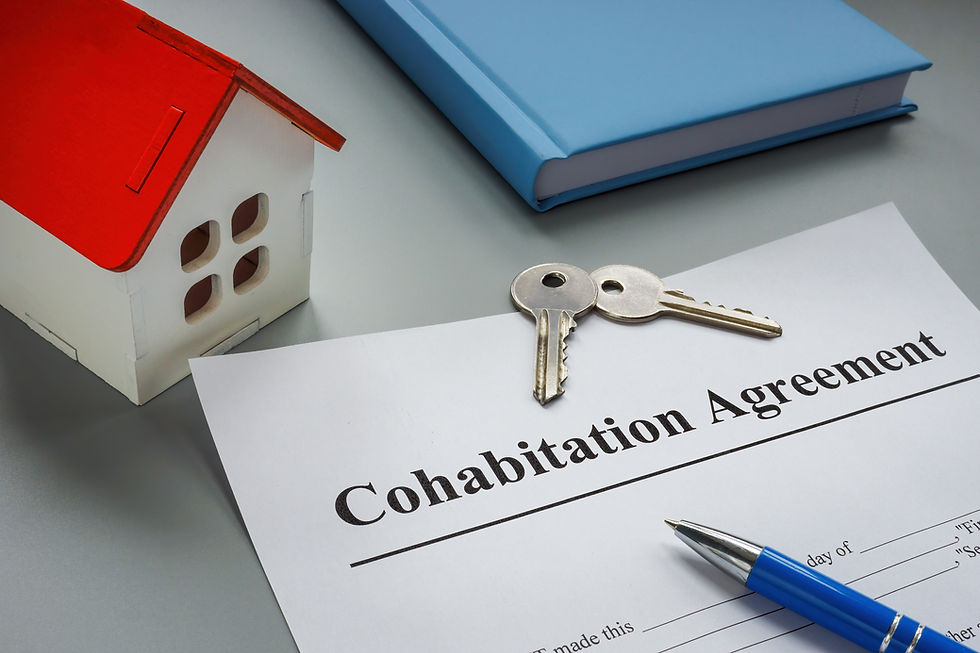The Recognition and Legal Status of Foreign Marriages in South Africa
- administration9514
- May 31, 2022
- 5 min read
The legal status of a marriage is determined by the legal regime of the country where it was solemnized or concluded. The reason for this is that a marriage is an agreement between at least two consenting parties, where reciprocal obligations arise. Jurisdiction in respect of contractual disputes is mainly (not exclusively however) founded where the contract was concluded.
Furthermore, it is inaccurate to apply legal rules to determine marriage consequences whereas such marriage was never concluded under those rules in the first place.
Foreigners getting married in South Africa
Foreign newlyweds will immediately be supplied with an Abridged Marriage Certificate, to be followed by an Unabridged Marriage Certificate when the marriage is registered with Home Affairs. The Unabridged Marriage Certificate is used to register the marriage back home.
For foreign nationals wishing to conclude their marriage in the Republic of South Africa according to its laws, being the Marriage Act 25 of 1961 or the Civil Union Act 17 of 2006, must comply with the requirements as provided in the pieces of legislation being:
a) Capacity to act
b) Agreement
c) Lawfulness
d) Prescribed formalities and documents e.g., valid passport, ID, death, and divorce papers is applicable, DHA BI-31 forms.
Are Foreign Marriages recognized in South Africa?
It is a different issue to request the South African state and its institutions to recognize a marriage solemnized outside the Republic between two foreign nationals as valid. Different countries have policy and legal considerations applicable to the recognition of marriages solemnized outside their territorial jurisdictions.
For foreign parties married under the Civil Union Act in South Africa, the marriage will need to be validly registered in their country of domicile with proof of this provided for it to be recognized as a foreign marriage.
In terms of patrimonial consequences, the Matrimonial Property Act 88 of 1984, does not apply to foreign marriages concluded in South Africa. This legislation regulates marital property systems in South Africa.
Registering a foreign marriage in South Africa
The parties should inform the Department of Home Affairs (DHA) of the foreign marriage to update your marital status and surname, if it has changed, on the Population Register.
The following documents must be submitted to register the marriage:
A written request for the foreign marriage registration, including your full contact details (address, mobile number, and email address).
Your South African passport or identity document.
Original or certified copy of the foreign marriage certificate accompanied by an English translation by a sworn translator if the original marriage certificate is not in English.
The DHA does not issue a certificate confirming the changed status. However, it will capture the information on its website.
Immovable Property and Foreign Marriages in South Africa
In a transaction where immovable property is mortgaged, sold, or purchased by a person within a foreign registered marriage, the other spouse’s involvement is required in terms of executing the documents of such transaction. The Title Deeds must also note that the marriage is governed by such foreign country’s laws.
Where a foreign marriage is concluded outside the parties’ domicile, the husband’s domicile at the time of the conclusion of the marriage prevails. This was the view of the Court in Frankel′s Estate and Another v The Master and Another (1950) ALL SA 347 A, where it was held that,
“The conclusion at which I arrive is that the matrimonial regime is governed by the law of the husband’s domicile at the time of the marriage, and that it is not governed by the law of another domicile which he then intends to acquire immediately or within a reasonable time after his marriage.”
The same principles were confirmed further in the case of Esterhuizen v Esterhuizen 1999 (1) SA 492 C, whereby a couple entered into a marriage out of community of property in Mauritius but settled in South Africa soon thereafter. The Plaintiff then claimed half of some assets upon dissolution of the marriage. The claim failed because of peculiar circumstances in this case but chiefly upon the Court’s determination with regards to the prevailing domicile of the husband to determine the prevailing matrimonial property system.
Added to this, the Hague Convention of 1978 provides that parties to a marriage where one or both is neither domiciled thereat may designate as to “the law of the state to which either spouse is a national at the time of designation, or the law of the state to which either spouse has habitual residence at the time of designation, or the law of the first state where one of the spouses established a new habitual residence after marriage.”
South African, married abroad
If you and your spouse were married abroad, how do you know if your marriage is recognized here in South Africa? What happens if things do not work out?
The Unabridged Marriage Certificate mentioned above that you receive from wherever it is you got married, will be “apostilled” (apostille is a method of certifying a document for use in another country) by Pretoria before being sent to them. This makes it legal in their home country and almost anywhere else in the world (because this only applies to countries that are signatories to the Hague Convention).
The principle of apostille is a pillar of the Hague Conference on International Private Law (HCCH). The HCCH has 83 member states (of which South Africa is one) – 82 countries plus the whole of the European Union, which is classified as one member state. The Apostille Convention (or Treaty) allows a document issued in one of the signatory countries to be certified for legal purposes in all the other signatory states. It is like notarization here in South Africa and is often applied to a document that has been notarized locally. If both countries involved are member states, there is no need for “legalization”, which involves dual certification – by the originating country and the receiving country.
What this means for your marriage certificate
If you get married abroad, you will need to show certain documents to the local authorities, usually your full birth certificate; valid 10-year passport with at least six months’ validity remaining; proof of any name changes (other than through marriage); and proof that any previous marriages are no longer valid – either the decree absolute in the case of divorce or the marriage and death certificates of the deceased spouse if one of you is widowed.
When you get married you will be issued with a marriage certificate. Be sure to have it apostilled (this is likely to be done automatically for you as foreigners but play safe – double check). Then when you return home, you simply register the marriage at Home Affairs using your apostilled marriage certificate and you will be issued with a South African marriage certificate.
Although many popular wedding destinations are part of the HCCH, it’s worth noting that on the African continent only South Africa, Zambia, Burkina Faso, Morocco, Egypt, and Mauritius are members. So, if for instance you are planning to get married in Zanzibar, for instance, you will need to have your marriage certificate legalized in both Tanzania and South Africa.
When will it matter?
Happily married couples rarely have cause to dig out their marriage certificate. There is no legal requirement to be married to take out a bond on a house together, for example. You do need to show your marriage certificate when registering the birth of a baby, but the validity of a marriage is only put to the test when there is a legal claim. This might be:
Divorce
A claim against an antenuptial contract
A claim for inheritance in the event of intestacy
A custody/care claim for children of the marriage
A charge of bigamy (if the foreign marriage was not disclosed at the time of a domestic marriage)
So, whether you are a South African couple planning the wedding of your dreams abroad, or you met and married your spouse overseas and returned here, it is a good idea to check the status of the country of marriage and make sure your documents are in order. You may save yourself a lot of heartache later.
We can help
If you are not sure whether your foreign marriage certificate is legal in South Africa, contact Rudolf Buys & Associates Attorneys, we will investigate and help you put things right if there are any irregularities.
.png)



Comments